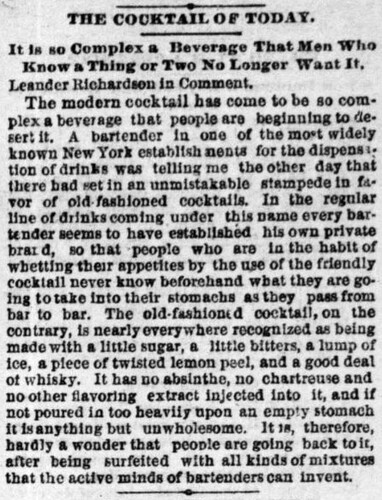As a bar owner and bartender, I often grapple with certain questions that seem to be at the heart of today’s bar scene. These are recurring themes that I believe many of us in the industry contend with.
The Art of Classic Bartending vs. Efficiency
I’m passionate about the craft of bartending. Watching skilled bartenders create cocktails is a joy, and I love engaging in discussions about drinks with colleagues and customers alike. This is why I have a personal aversion to premixed and batched cocktails. To me, they lack the soul and personality of a drink made to order.
However, running a successful bar requires a keen understanding of business realities. Larger bars often rely on pre-batched cocktails for efficiency, especially during peak hours. Customers seated at tables prioritize fast service; they want their drinks quickly, regardless of the preparation method. The visual spectacle of bartenders shaking and stirring provides ambiance, but ultimately, table service demands speed.
Smaller bars, with limited staff, often turn to batching and premixing out of necessity. This frees up the bartender to interact with patrons at the bar, fostering a sense of community. I’ve witnessed impressive systems for high-volume service, like the hidden dispense bar at Mai Kai in Fort Lauderdale. Their efficiency is remarkable.
Navigating the World of Brands
There’s something reassuring about walking into a bar anywhere in the world and ordering a classic cocktail made with familiar brands. Using recognized, quality brands lends credibility to a bar and elevates the perceived value of the drinks. Unique brands, such as Chartreuse, can even become signature elements, setting a bar apart.
Supporting craft and local spirits is a compelling narrative. However, experience has taught me that quality spirits don’t always require exorbitant prices. Smaller, local brands often carry higher costs due to limited production capacity. This can make them less viable for a business.
Furthermore, many brands seem to use the hospitality industry as a stepping stone for initial growth, then move on. Brands like Chartreuse, in my opinion, cultivate mystique, increase prices, and create artificial scarcity. Despite years of loyalty, bars are then forced to pay inflated prices, impacting profitability. This led us to replace Chartreuse with the classic French liqueur “Gauloise.”
The Homemade Advantage (and its Challenges)
Drinks and bars can gain recognition through simple, accessible ingredients and brands. My Gin Basil Smash, created 17 years ago, remains a top seller and a draw for cocktail enthusiasts visiting our bar in Hamburg. While signature drinks exclusive to your bar can generate excitement, their fame is often limited.
Creating a narrative around your drinks and ingredients is essential. A good story adds value. You can promote established brands or tell your own story by using unique, in-house creations.
Making ingredients in-house often involves higher labor costs due to smaller-scale production. While ingredient costs generally decrease, labor remains a significant expense. Techniques like rotovaping, using inexpensive neutral alcohol to enhance flavors, can be a cost-effective approach.
However, building trust with guests is crucial when selling “homemade” drinks without recognizable brands. Some may be skeptical of the value proposition.
Creativity is enticing, and crafting unique ingredients can be fulfilling. However, in a business context, creativity should be focused on results, not just self-expression. Many labor-intensive, homemade creations I’ve encountered are pleasant but lack memorability.
Of course, there are exceptions. The SPACE Gibson Martini at BAR SPEAK IN CODE in Manchester, with its homemade SPACE Flips brine, is an unforgettable example.
Balancing Labor, Crowds, and Marketing
Two major challenges for bars are managing labor costs and consistently attracting crowds. Homemade ingredients, while labor-intensive, offer a unique selling point and fuel compelling stories.
Furthermore, offering the opportunity to learn and experiment with in-house creations is a powerful tool for attracting talented bar staff.
The trend in competitions like the “50 Best Bars” has shifted towards “rotovap” bars, driven by marketing and PR. This can create a misleading impression of what constitutes excellence in the industry.
The pursuit of high-end, processed ingredients can sometimes resemble the approach of Michelin-star kitchens, with a touch of egotism. I believe that bars should prioritize hospitality: creating a casual, welcoming, and approachable atmosphere.
Ultimately, finding the right balance between classic techniques, innovative approaches, and business considerations is key to creating a successful and enduring bar.
